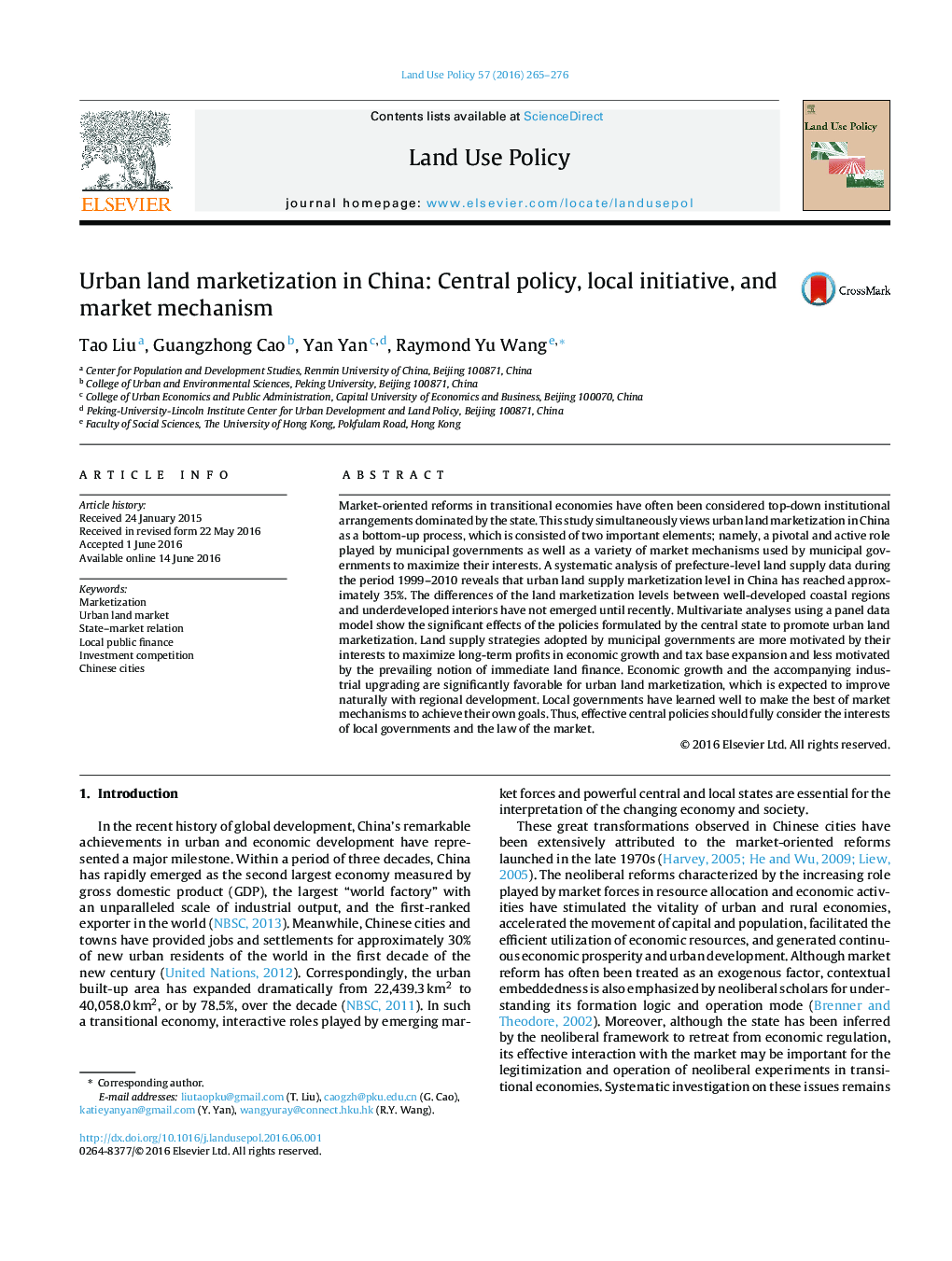| Article ID | Journal | Published Year | Pages | File Type |
|---|---|---|---|---|
| 6547015 | Land Use Policy | 2016 | 12 Pages |
Abstract
Market-oriented reforms in transitional economies have often been considered top-down institutional arrangements dominated by the state. This study simultaneously views urban land marketization in China as a bottom-up process, which is consisted of two important elements; namely, a pivotal and active role played by municipal governments as well as a variety of market mechanisms used by municipal governments to maximize their interests. A systematic analysis of prefecture-level land supply data during the period 1999-2010 reveals that urban land supply marketization level in China has reached approximately 35%. The differences of the land marketization levels between well-developed coastal regions and underdeveloped interiors have not emerged until recently. Multivariate analyses using a panel data model show the significant effects of the policies formulated by the central state to promote urban land marketization. Land supply strategies adopted by municipal governments are more motivated by their interests to maximize long-term profits in economic growth and tax base expansion and less motivated by the prevailing notion of immediate land finance. Economic growth and the accompanying industrial upgrading are significantly favorable for urban land marketization, which is expected to improve naturally with regional development. Local governments have learned well to make the best of market mechanisms to achieve their own goals. Thus, effective central policies should fully consider the interests of local governments and the law of the market.
Related Topics
Life Sciences
Agricultural and Biological Sciences
Forestry
Authors
Tao Liu, Guangzhong Cao, Yan Yan, Raymond Yu Wang,
